★★½
“The calamari fights back…”
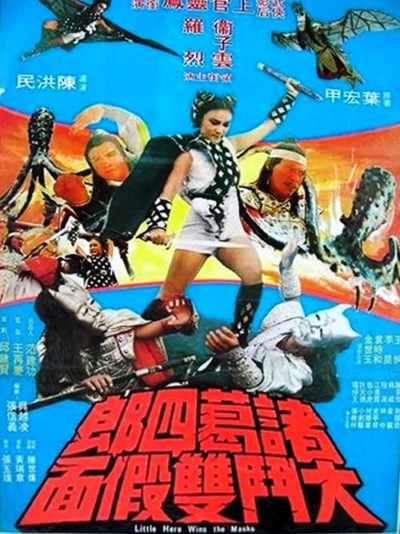 Although almost a decade earlier than Lin Hsiao Lan’s slew of fantasy kung-fu flicks, this shares a lot of the same elements – not least an approach to narrative coherence best described as “informal.” This starts at the beginning, where we don’t even get introduced to the participants, before the martial arts breaks out. As we learn a little later, it turns out this pits Chu-Kwok Su-Lan (Shang-Kuan) against three members of the Devil’s Gang, in defense of her two, largely useless sidekicks. This is just the first of numerous encounters between our hero – yes, it’s another unconvincing male impersonator out of Taiwan – against various members of the group, and eventually their leaders, Gold Mask (Lo) and Silver Mask (Wang).
Although almost a decade earlier than Lin Hsiao Lan’s slew of fantasy kung-fu flicks, this shares a lot of the same elements – not least an approach to narrative coherence best described as “informal.” This starts at the beginning, where we don’t even get introduced to the participants, before the martial arts breaks out. As we learn a little later, it turns out this pits Chu-Kwok Su-Lan (Shang-Kuan) against three members of the Devil’s Gang, in defense of her two, largely useless sidekicks. This is just the first of numerous encounters between our hero – yes, it’s another unconvincing male impersonator out of Taiwan – against various members of the group, and eventually their leaders, Gold Mask (Lo) and Silver Mask (Wang).
There is a loose justification for all of these flying fisticuffs: literally flying, in the case of the Mask brothers. For they zoom about on their strap-on wings, accompanied by VTOL airplane sounds, more befitting a busy day on an aircraft carrier. Anyway, the excuse is the pursuit of a legendary artifact called the Phoenix Sword, which was being transported to Master Chen in Dragon City. Its couriers are ambushed, yet manage to hand off the case containing the weapon to a random orphan, conveniently bathing nearby. The Devil’s Gang then kidnap Chen’s daughter, demanding another legendary item, the Dragon Sword in exchange for her safe return. Chen is having none of it, so recruits a bunch of his former students, including Su-Lan, to go after the kidnappers and rescue his daughter.
There is some other stuff. However, a) the above is all you need to know, and b) I’m not clear enough on much more, to be willing to commit fully to putting it on the Internet. In any case, this is definitely one of those films where, if you don’t like this fight sequence, just wait – because there will be another along in a few minutes. I suspect my rating might well be higher if there was a decent presentation of this film available. It only appears to be available in a severely cropped version, which half the time is zoomed in far too close to appreciate what’s going on, and in an English dub that leaves no molecule intact of the performances beneath it.
All that’s left after this scorched earth approach to the visual and audio elements, is to appreciate the berserk imagination on view. This reaches its peak at the end, where Su-Lan faced off on the beach against a pair of giant octopi. Their preferred method of attack is to squirt mini-octopi at him. While I can certainly appreciate the surprise value inherent in such an approach, it doesn’t seem very sustainable. As a finale, we then get Su-Lan against Gold Mask – who is no longer masked – on what looks like a children’s adventure playground. Again: none of this makes sense in the context of the story, something I felt tended to be aggravating rather than enjoyable. If you’re of a more relaxed attitude, you may well get more out of this than I did.
Dir: Hung-Min Chen
Star: Polly Shang-Kuan, Barry Chan, Lieh Lo, Hsieh Wang





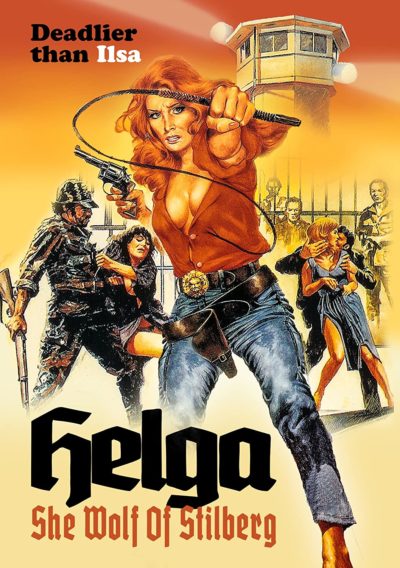 I guess this shows that the concept of the “mockbuster” is not something invented by The Asylum. This came out in 1978, the year after
I guess this shows that the concept of the “mockbuster” is not something invented by The Asylum. This came out in 1978, the year after 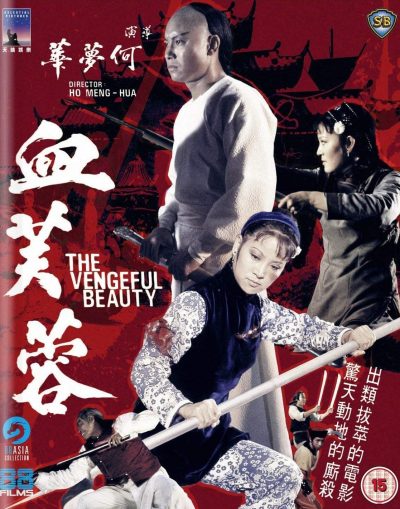
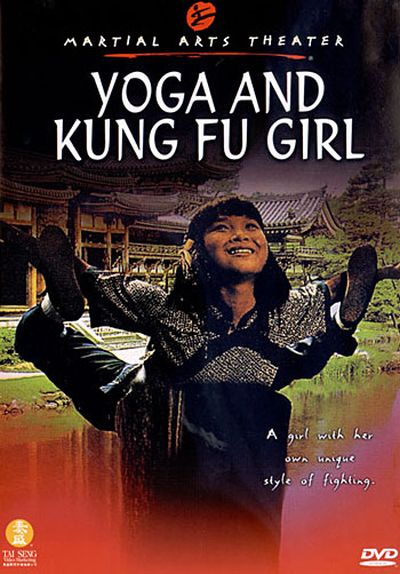 I’m trying to figure out if the “the” in the IMDb title used here is superfluous. “Yoga and Kung-fu Girl,” as on the DVD sleeve would make more sense, given the heroine’s martial arts are a combination of traditional skills with extreme flexibility. In some ways, it’s a slightly less exploitative version of things like The Crippled Masters, with its amputee-fu. The heroine here, Phoenix, could similarly make a living as a carnival exhibit, given her contortionist abilities, which are here shoe-horned into use to provide a style of fighting. To say this works with variable success would be an understatement. There are moments when her talents and flexibility are genuinely impressive. However, there are others where her limitations and lack of training are painfully apparent.
I’m trying to figure out if the “the” in the IMDb title used here is superfluous. “Yoga and Kung-fu Girl,” as on the DVD sleeve would make more sense, given the heroine’s martial arts are a combination of traditional skills with extreme flexibility. In some ways, it’s a slightly less exploitative version of things like The Crippled Masters, with its amputee-fu. The heroine here, Phoenix, could similarly make a living as a carnival exhibit, given her contortionist abilities, which are here shoe-horned into use to provide a style of fighting. To say this works with variable success would be an understatement. There are moments when her talents and flexibility are genuinely impressive. However, there are others where her limitations and lack of training are painfully apparent.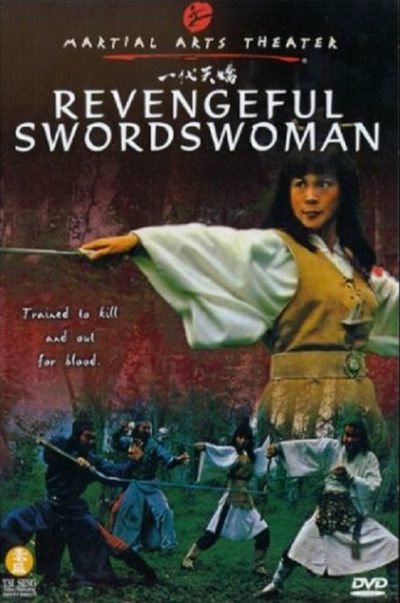 There’s no hanging around here. Virtually as we meet our heroine, Hsiang Ying (Lee), she’s getting tossed off a cliff by her kung-fu teacher, into a pack of wolves. Having survived that and made her way back – perhaps assuming this was all some terrible misunderstanding – her master then disavows her, announces he was the man responsible for killing her father, and locks her up in a cage. This all happens within, literally, three minutes of the film starting. Fortunately, a passing stranger sees fit to free her from the cage, and the ‘Heartless Lady’, as she becomes known, can go on her way, with the eventual aim of being exactly what the title suggests: revengeful.
There’s no hanging around here. Virtually as we meet our heroine, Hsiang Ying (Lee), she’s getting tossed off a cliff by her kung-fu teacher, into a pack of wolves. Having survived that and made her way back – perhaps assuming this was all some terrible misunderstanding – her master then disavows her, announces he was the man responsible for killing her father, and locks her up in a cage. This all happens within, literally, three minutes of the film starting. Fortunately, a passing stranger sees fit to free her from the cage, and the ‘Heartless Lady’, as she becomes known, can go on her way, with the eventual aim of being exactly what the title suggests: revengeful.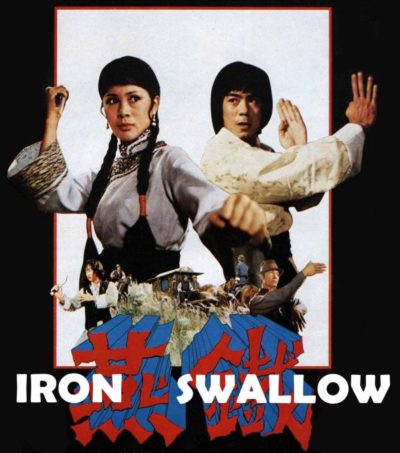 Generally, if someone is roaming the country, carrying out brutal attacks on apparently innocent citizens, blinding and disfiguring them, they’d be the villain of the piece, right? Not so here. For despite such distinctly non-heroic actions, Iron Swallow (Lee) is the heroine, disabling the men she holds responsible for killing her father years earlier. Needless to say, they’re not exactly impressed with the situation. To make matters worse, someone is flat-out killing her targets, intent on covering up something or other, and is trying to make it look like Swallow is responsible, by leaving her trademark darts behind at the scene. There are also two friends (Tao and Chung) rattling around, the son and pupil respectively of the region’s leading martial arts master Chu Hsiao Tien (Yuen), who get involved in the murky situation because Chu is one of Swallow’s targets and has hired a particularly loathsome assassin to bury the case.
Generally, if someone is roaming the country, carrying out brutal attacks on apparently innocent citizens, blinding and disfiguring them, they’d be the villain of the piece, right? Not so here. For despite such distinctly non-heroic actions, Iron Swallow (Lee) is the heroine, disabling the men she holds responsible for killing her father years earlier. Needless to say, they’re not exactly impressed with the situation. To make matters worse, someone is flat-out killing her targets, intent on covering up something or other, and is trying to make it look like Swallow is responsible, by leaving her trademark darts behind at the scene. There are also two friends (Tao and Chung) rattling around, the son and pupil respectively of the region’s leading martial arts master Chu Hsiao Tien (Yuen), who get involved in the murky situation because Chu is one of Swallow’s targets and has hired a particularly loathsome assassin to bury the case.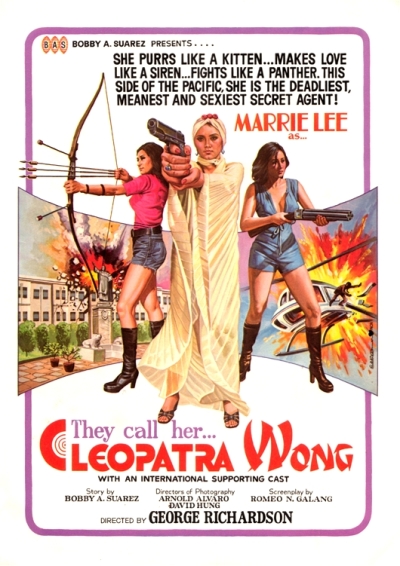 “Cleopatra Wong is Asian Interpol’s answer to James Bond, Flint, Cleopatra Jones and Stacey.” Well, less an answer, more like a repetition of the question, since this is firmly in “cheap Asian knock-off” market, though has some charm in its first half. Wong (Lee) is an agent, assigned to investigate a flood of near-undetectable counterfeit money which is flooding the markets in Hong Kong, the Philippines and elsewhere in the far East. It’s happening in such volume, there’s potential to destabilize the entire economies of the affected countries. She takes down the Singapore branch of the operation, and then discovers the money is being transported in shipments of strawberry jam, emanating from a monastery north of Manilla. After finding them to be not exactly a social order, Wong takes pictures by flying over their compound, which shows that these nuns have some nasty habits – specifically, they’re brothers rather than sisters, and concealing automatic weapons under their vestments. Time for Cleo to assemble and lead a team of crack agent in a raid on the convent, take out the bad guys, rescue the real nuns and save the world for free-market capitalism.
“Cleopatra Wong is Asian Interpol’s answer to James Bond, Flint, Cleopatra Jones and Stacey.” Well, less an answer, more like a repetition of the question, since this is firmly in “cheap Asian knock-off” market, though has some charm in its first half. Wong (Lee) is an agent, assigned to investigate a flood of near-undetectable counterfeit money which is flooding the markets in Hong Kong, the Philippines and elsewhere in the far East. It’s happening in such volume, there’s potential to destabilize the entire economies of the affected countries. She takes down the Singapore branch of the operation, and then discovers the money is being transported in shipments of strawberry jam, emanating from a monastery north of Manilla. After finding them to be not exactly a social order, Wong takes pictures by flying over their compound, which shows that these nuns have some nasty habits – specifically, they’re brothers rather than sisters, and concealing automatic weapons under their vestments. Time for Cleo to assemble and lead a team of crack agent in a raid on the convent, take out the bad guys, rescue the real nuns and save the world for free-market capitalism.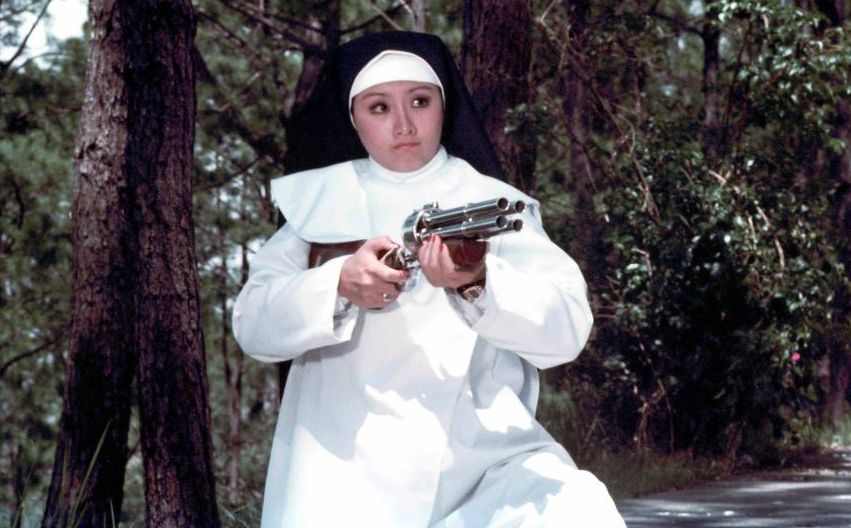
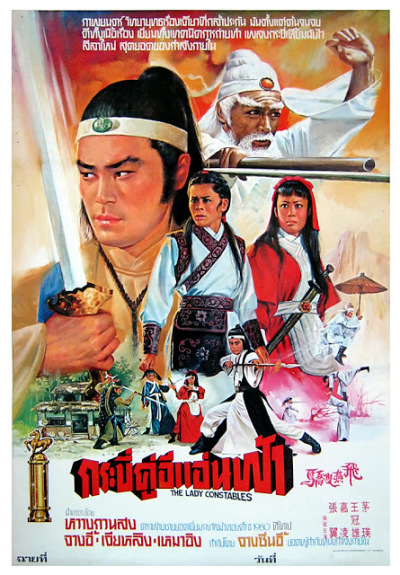 I first encountered this in a dreadful copy on Youtube: dubbed, cropped to 4:3 and apparently filmed off someone’s TV during a Force 10 storm at sea. However, what was left after that, was still impressive enough to make me track down a better copy. Well, somewhat better: it had subs, albeit burned in and incomplete, while the 16:9 ratio was at least a vague approximation to the original widescreen print. Still, you take what you get, and this is certainly enough fun to overcome the adversity of any flaws in the format.
I first encountered this in a dreadful copy on Youtube: dubbed, cropped to 4:3 and apparently filmed off someone’s TV during a Force 10 storm at sea. However, what was left after that, was still impressive enough to make me track down a better copy. Well, somewhat better: it had subs, albeit burned in and incomplete, while the 16:9 ratio was at least a vague approximation to the original widescreen print. Still, you take what you get, and this is certainly enough fun to overcome the adversity of any flaws in the format. In the late seventies, British television was notable for series which generally kicked ass on the performance front, but suffered from woefully inadequate production values. The most well-known example is Doctor Who, but that was just the tip of a dramatic iceberg which included the likes of Blake’s 7 and this series: in some cases, you can look past or ignore the deficiencies, because the acting is good enough to counteract them. That, sadly, isn’t the case here, with Phillips (a compatriot of Diana Rigg and Glenda Jackson at RADA) sadly adrift as Boudicca, the queen of the Iceni who takes on the occupying Roman forces after her daughters are assaulted. Having enjoyed the 2003 version, with Alex Kingston in the title role, I thought I’d give this one a chance, but when a supposed army of 6,000 is represented by four chariots and, maybe, ten guys in animal skins, it’s hard not to notice.
In the late seventies, British television was notable for series which generally kicked ass on the performance front, but suffered from woefully inadequate production values. The most well-known example is Doctor Who, but that was just the tip of a dramatic iceberg which included the likes of Blake’s 7 and this series: in some cases, you can look past or ignore the deficiencies, because the acting is good enough to counteract them. That, sadly, isn’t the case here, with Phillips (a compatriot of Diana Rigg and Glenda Jackson at RADA) sadly adrift as Boudicca, the queen of the Iceni who takes on the occupying Roman forces after her daughters are assaulted. Having enjoyed the 2003 version, with Alex Kingston in the title role, I thought I’d give this one a chance, but when a supposed army of 6,000 is represented by four chariots and, maybe, ten guys in animal skins, it’s hard not to notice.